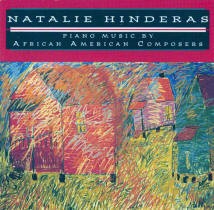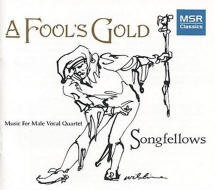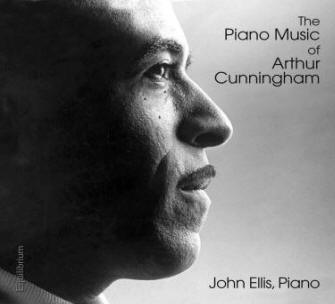Home
Blog
Composers
Musicians
Black History
Audio
About Us
Links
Composers:
Adams, H. Leslie
Akpabot, Samuel Ekpe
Alberga, Eleanor
Bonds, Margaret Allison
Brouwer, Leo
Burleigh, Henry Thacker
Coleridge-Taylor, Samuel
Cunningham, Arthur
Dawson, William Levi
Dede, Edmund
Dett, R. Nathaniel
Elie, Justin
Ellington, Edward K. "Duke"
Euba, Akin
Garcia, José Mauricio Nunes
Hailstork, Adolphus C.
Holland, Justin
Jeanty, Occide
Johnson, James Price
Joplin, Scott
Kay, Ulysses Simpson
Khumalo, Mzilikazi
Lambert, Charles Lucien, Sr.
Lambert, Lucien-Leon G., Jr.
Lamothe, Ludovic
Leon, Tania
Moerane, Michael Mosoeu
Perkinson, Coleridge-Taylor
Pradel, Alain Pierre
Price, Florence Beatrice Smith
Racine, Julio
Roldan, Amadeo
Saint-Georges, Le Chevalier de
Sancho, Ignatius
Smith, Hale
Smith, Irene Britton
Sowande, Fela
Still, William Grant
Walker, George Theophilus
White, José Silvestre
Williams. Julius Penson
AfriClassical Blog
Companion to AfriClassical.com
Guest Book
William J. Zick, Webmaster,
wzick@ameritech.net
©
Copyright 2006 - 2022
William J. Zick
All rights reserved for all content of AfriClassical.com

Piano Music of African American Composers
Engrams
Natalie Hinderas, piano
CRI 629 (1993)

A Fool's Gold
Honey Brown
Songfellows, Male Vocal Quartet
MSR Classics (2004)
|
Home ->
Composers -> Cunningham, Arthur
Français
1 Music Education
John Ellis is a pianist and a Professor of Piano at the
University of Michigan, and was a student and a close
associate of Arthur Cunningham. He has recorded The
Piano Music of Arthur Cunningham, Equilibrium 65
(2004). He also wrote the liner notes for the CD, on which
Cunningham's compositions for piano are accompanied by a
13-minute track entitled Excerpts from Interviews with
Arthur Cunningham. Prof. Ellis conducted the
interviews himself. The liner notes begin:
|
Arthur Cunningham was born in Piermont,
N.Y.
in
1928. He was an eclectic composer trained from
childhood in both jazz and classical music. His early
studies were at the Metropolitan
Music School in New York City. While
there, he studied classical composition with
the school's director, Wallingford Riegger and
jazz piano with Teddy Wilson and John Mehegan. |
2 Fisk University
The liner notes by John Ellis continue with an overview of
Cunningham's studies in college and graduate school,
beginning with the names of some prominent benefactors who
supported his studies at Fisk University:
|
Upon
graduation, he went to Fisk University, an
historic all-Black school in Nashville, Tennessee.
His education there was made possible
by a fund set up by a group including Kurt Weill, Langston Hughes, Irving Berlin, and Richard
Rodgers. At Fisk, he studied classical
piano with the well-known accompanist
William Duncan Allen, and theory and
composition with John Work. |
3 Juilliard
After graduating from Fisk University, Arthur Cunningham
studied at the Juilliard
School, as the liner notes relate:
|
He
studied further at The Juilliard School with Peter Mennin, Norman Lloyd, and Henry Brant. He
earned a Masters Degree from Columbia Teachers
College where he received the Distinguished
Alumni Award in 1992. |
4 Symphonic Debut
John Ellis explains how a commission for a classical work
led to Arthur Cunningham's debut as a symphonic composer:
|
His
work as a composer took flight in 1968 after
a commission from Benjamin Steinberg
and
the Symphony of the New World. The piece
he produced was the dissonant and rhythmically
complex Concentrics for orchestra.
It was given its premiere at Philharmonic
Hall in Lincoln Center, NYC in February
1969. His most prolific period followed
with works such as Engrams, Harlem Suite (including
Lullabye for a Jazz Baby which
was performed by the Alvin Ailey Dance Company), Night Song, Eclatette
for solo cello or
double bass, The Walton Statement for double
bass and orchestra, and many other choral
and instrumental pieces. |
5 Late Period
Prof. Ellis notes that Arthur Cunningham pursued interests
in jazz piano for some time before returning to classical
composing:
|
Following
a period in the early 1980's where he focused
on jazz piano playing, vocal coaching and
teaching, he returned to composing in 1986
with a group of short piano pieces. A high
point of this late period was his revision of Concentrics
for a performance by the New York
Philharmonic under Zubin Mehta in 1989. |
6 Kate Davidson
The liner notes explain the role Kate Davidson played in the
last several years of Arthur Cunningham's life:
|
His
compositional activities and jazz performing
continued until his death. His work with cabaret artist, Kate Davidson (whom he would
later marry) was a central creative activity
in the last decade of his life. Together, they
performed throughout the U.S., Canada, and
the Netherlands, and served as U.S. representatives
at Expo '92 in Seville, Spain. Further
evidence of Cunningham's wide-ranging activities
was his work as music coordinator and
narrator for the 1989 PBS documentary, The
Exiles. |
7 Death
Arthur Cunningham died on
March 31, 1997. John Ellis writes that he passed away
shortly after being honored at a community college concert:
|
He
died after a long struggle with cancer in
1997,
only a month after a concert in his honor produced by the Rockland Community College African-American History Month Committee. For
this concert, he provided spoken commentary
on his works before they were played.
He then performed, for the final time, with his wife. |
8 Harlem Suite
John Ellis begins his recording with a performance of
Harlem Suite (20:02). He relates the history of the
work in his notes:
|
Harlem
Suite was composed for piano in 1970. Arthur
Cunningham had been writing piano pieces
since the mid-1960's and there is an early
version of Lullabye for a Jazz Baby in a workbook
of piano pieces from this time.
...
A
neat manuscript copy of the piano version of Harlem
Suite was found after his death and was
dedicated to Natalie Hinderas. Cunningham
later was encouraged to recast many
of the pieces in choral and orchestral
form.
After doing so, Theodore Presser Co.
published
the choral and instrumental works that
came to make up the Harlem Suite. More specifically,
Lullabye for a Jazz Baby and Sugar
Hill were brought together, on the advice
of conductor André Kostalanetz, to form the
orchestral tone poem Lullabye for a Jazz Baby.
This work was recorded on Desto by the
Oakland Youth Symphony and featured a young
John Faddis playing the jazz trumpet solo.
It eventually received over a thousand performances
throughout the 1970's and 1980's. |
9 Engrams
Prof. Ellis explains that the next piece,
Engrams (6:13) was commissioned for a recording first released in
1971 and later reissued as CRI 629 (1992), Natalie
Hinderas: Piano Music by African American Composers.
Its liner notes were written by Dominique-René de Lerma,
then Director of the Center for Black Music Research:
|
In
dramatic contrast to Cunningham's popular-inspired
works is his piano piece Engrams(1969)
which is freely based on three versions of
a tone row. The title is a biological term (referring
to the evidence of a stimulus on a protoplasm)
and suggests gentle meditations on
the past, despite the scherzo-like middle section.
Cunningham has written: "I titled this
piece Engrams because the sounds are memory
tracings...It progresses from the dark of
my mind to the light of reality." |
10 A Fool's Gold
Cunningham's piece
Honey Brown is part of an
eclectic program of vocal works sung by the Songfellows
quartet on the CD A Fools Gold, MSR Classics
(2004). The company's Web site,
www.msrcd.com
explains the group's origins:
|
Songfellows
is a traditional male vocal quartet (two
tenors, baritone, bass) that was originally formed
in 1992 from the men’s chorus of the Metropolitan
Opera. Founded by Ross Crolius as
an adjunct to his career at the Met, the group
has performed regularly every season throughout
the northeast. |
11 Interviews
As noted in the opening paragraph, Prof. Ellis included
Excerpts from Interviews with Arthur Cunningham as the
final track of his recording. He gives a rationale for the
interviews in general and the excerpts in particular in his
liner notes:
|
While
working on my doctoral dissertation on the
life and music of Arthur Cunningham, I interviewed
the composer from October through
December, 1989 at his studio in Nyack,
N.Y. I have selected excerpts from the many
hours of taped conversations and placed them
together. This offers the listener an introduction
to the composer's life history, compositional
attitudes relating to his jazz and classical
studies, and his feelings about the effect
of his African-American heritage on his composing.
I also chose these excerpts because
they show some of the charm, humor and
creative intensity of the man who was my piano
teacher for four years and became my advisor
and friend until his passing in 1997. |
12 Cunningham's Works
Dominique-René de Lerma, Professor, Lawrence University
Adagio, oboe & string orchestra (1954).
Amen (1962) SATB.
Amen, Amen (1965) SATB.
Ballet (1968) jazz quartet & string quartet.
Basis (1968) 4 double basses. Library: Fisk.
Beginner's piano book (1964) piano. Contents: 28 pieces.
By this dying, flute & violoncello.
Concentrics (1968) chamber orchestra. Bryn Mawr: Theodore
Presser. Duration: 28:00. Instrumentation: 1111 p Eh bcl, 3331,
perc, solo violin, viola & violoncello. Library: Fisk.
The cossack (1964) SATB. Text: Arthur Cunningham.
Covenant (1972) violoncello & double bass. Nyack NY: Cunningham
Music Corporation. Commission: Arthur Davis. Premiere: Arthur
Davis.
Dialogues (1966) piano & orchestra. 47p. Duration: 5:00.
Instrumentation: solo piano, 2221, 2220, timp, perc, strings.
Dim du mim (1969) oboe & chamber orchestra. Instrumentation:
solo oboe, 2011 bcl, 2220, perc, strings. Library: Fisk.
----- English horn & chamber orchestra. Instrumentation: solo
English horn, 2011 bcl, 2220, perc, strings. Library: Fisk.
Eclatette (1969) violoncello. The Black perspective in music,
v3n2 (May 1975) p226-234. Dedication: William Grant Still.
Engrams' (1969) piano. Bryn Mawr: Theodore Presser. Recorded:
Desto DC-7102/3 (Natalie Hinderas, piano).
Fifty stars, SA.
Four shadows (1950) piano.
Fragment (1968) brass & percussion. Instrumentation: 3330, timp,
perc (5 temple blocks, maracas, claves, tambourine, cymbals,
snare drum, bass drum). Library: Fisk.
From where I stand (1964; rev. 1950) SATB. Text: Arthur
Cunningham.
Fruitful trees more fruitful are (1965) 3-part chorus (SSA?).
Text: George Herbert.
Garden of Phobus. see: Moons of Mars
The ginger man (1964; rev. 1955) TTBB. Text: Arthur Cunningham.
2 Haitian play dances (1951) 2 pianos.
Harlem suite:
----- Harlem is my home; Touch the tree, solo soprano, SATB &
piano. Bryn Mawr: Theodore Presser, 1972. 15p. (#321-41002)
Commissioned: Dr. Robert Jones for the Laurentian Singers of St.
Lawrence University.
----- Hinkty woman, solo tenor, SATB & piano. Bryn Mawr:
Theodore Presser, 1972. 24p. (#312-41096) Commissioned: Dr.
Robert Jones for the Laurentian Singers of St. Lawrence
University. Library: Library of Congess.
----- Lenox, narrator, SATB & piano. Bryn Mawr: Theodore
Presser, 1972. 6p. (#312-20982) Commissioned: Dr. Robert Jones
for the Laurentian Singers of St. Lawrence University.
----- A little love; a salvation piece, solo soprano, baritone,
SATB & piano, with options electric bass & drums. Bryn Mawr:
Theodore Presser, 1972. 19p. (#312-40965) Commissioned: Dr.
Robert Jones for the Laurentian Singers of St. Lawrence
University. Library: Library of Congress.
----- Lullabye for a jazz baby (1969), solo trumpet & orchestra.
Bryn Mawr: Theodore Presser, 1975. 29p. Duration: 6:30.
Instrumentation: solo trumpet, 2231, 2220, perc, harp, strings.
Commission: Andr‚ Kostelanetz. Library: Library of Congress,
76-771090. Recorded: Desto DC-7107 (Oakland Youth Orchestra;
Robert Hughes, conductor)
----- Munday man, SATB & piano. Bryn Mawr: Theodore Presser,
1972. 8p. (#312-40983) Commissioned: Dr. Robert Jones for the
Laurentian Singers of St. Lawrence University. Library: Library
of Congress.
----- Pataditas; Little kicks, solo piano & orchestra. Bryn Mawr:
Theodore Presser. Duration: 5:00. Instrumentation: solo piano,
2231, 3330, timp, perc, strings.
----- Sunday in de evenin', SSAA & piano. Bryn Mawr: Theodore
Presser, 1972. 6p. (#312-40968) Commissioned: Dr. Robert Jones
for the Laurentian Singers of St. Lawrence University. Library:
Library of Congress.
----- World goin' down, SATB. Bryn Mawr: Theodore Presser, 1972.
11p. (#312-40967) Commissioned: Dr. Robert Jones for the
Laurentian Singers of St. Lawrence University.
He met her at the Dolphin; Holiday (1963), SATB with piano
reduction. New York: Remick Music Corporation, 1964. 10p.
(Secular choral music, R 3457; #4423-9) Text: Arthur Cunningham.
LIBRARY: BRITISH LIBRARY.
His natural grace (1969), one-act opera. Text: Arthur
Cunningham.
House by the sea (1966), one-act opera. Library: Fisk
(libretto).
Hymn of our Lord at the Last Supper (1962) SATB. Text: Acts of
St. John.
I am an American, by Arthur Cunningham and X==== Schuster, SATB.
Delaware Water Gap: Shawnee Music Press. (A-438)
In the year seventeen, SATB.
2 Inventions (1952) 2 double basses.
Into my heart (1964) SATB. Text: A. E. Housman.
Jabberwocky (1960) high voice & piano. Text: Lewis Carrol.
Jill Ellen (1975) guitar, violin, viola, and violoncello.
----- (1977) guitar.
Jubilee songs:
----- Honey Brown, TTBB. Byrn Mawr: Theodore Presser, 1972. 8p.
(#312-40969) Dedication: Sharron Miller.
----- 2 Prayers: Lord, look down; We gonna make it, SATB. Bryn
Mawr: Theodore Presser, 1972. 8p. (#312-40966) Dedication: Fisk
Jubilee Singers, on their 100th anniversary.
-----Timber, SATB. Bryn Mawr: Theodore Presser, 1972. 5p.
(#312-40970) Text: Arthur Cunningham.
The leaden eyed (1956), high voice & piano. Text: Vachel
Lindsay.
Let the day begin (1964) SA.
Lights across the Hudson, orchestra.
Litany for the flower children (1972), SATB & orchestra. Nyack:
Cunningham Music Corporation. Premiere: 4 August 1972; Stanford
CA; Stanford University Summer Session Chorus; members of the
San Francisco Symphony Orchestra; Arthur Cunningham, conductor.
The loveliest of trees (1964), SATB. Text: A. E. Housman.
Lovey lovey (1968), mini-opera 1 act. Text: Arthur Cunningham.
Original title: His natural grace. Library: Fisk (libretto).
Minakesh (1969) violoncello & string orchestra.
----- oboe & piano (1969)
Moons of Mars suite (1968):
----- The garden of Phobos, SATB. Text: "Life sounds." Library:
Fisk.
Night lights (1955) orchestra.
Night song (1973) SATB & orchestra. Bryn Mawr: Theodore Presser,
1974. Text: (1) in Swahili; (2) in Gullah; (3) in English.
Duration: 60:00. Commission: Cheney State College.
Octet, percussion (1968). Instrumentation: snare drum, 5 temple
blocks, 3 timpani, 4 timbales, suspended cymbal, maracas, giro,
tambourine, claves, bass drum. Library: Fisk.
Omnus (1968) string orchestra.
Organ prelude and hymn on Lead us still and guide us (1965) SATB.
Text: Arthur Cunningham.
Ostrich feathers (1964), a musical play in two acts for
children. Bryn Mawr: Theodore Presser. Text: Barbara Brenner.
Duration: 60:00. Premiere?: 1974; California State College,
Dominguez Hills.
Pale moons rise (1955) SATB. Text: Arthur Cunningham.
Patsy Patch and Susan's dream (1963), musical comedy for very
young children. Text: Arthur Cunningham.
Perimeters (1965) flute, clarinet, vibraphone & double bass.
60 Piano pieces (1966) piano
The prince (1971) medium voice & orchestra. Bryn Mawr: Theodore
Presser. Duration: 25:00. Instrumentation: 2222, 2221, timp,
perc, strings. Premiere (excerpts): 3 April 1973; Detroit
Symphony Orchestra; Paul Freeman, conductor.
Prometheus (1967) double bass or piano & orchestra.
Ring out, wild bells (1965) SATB. Text: Alfred Lord Tennyson.
Septet, woodwinds (1968). Instrumentation: piccolo, flute, oboe,
English horn, clarinet, bass clarinet, bassoon. Library: Fisk.
Serenade (1955) violoncello & piano.
Sing, children, sing (1964) SATB. Text: Arthur Cunningham.
Song of songs (1951) high voice & piano. Text: Wilfred Owen.
Songs for A midsummer night's dream (1967) high voice & piano.
Contents: (1) Purple grapes, green figs, and dewberries; (2)
Thisby dying; (3) I do wander everywhere; (4) Loves and madmen.
Text: William Shakespeare.
Sugarhill (1969) violoncello, 2 double basses & piano.
Sun bird (1974) low voice, guitar & orchestra. Duration: 15:00.
Premiere: March 1975; Newport News.
Sunday stone, SATB & piano or organ. Bryn Mawr: Theodore
Presser, 1974. 12p. (Choir loft series; #312-41053) Text: Arthur
Cunningham. Duration: 4:00. Dedication: David Liebler. Premiere:
St. Lawrence University, Canton NY.
Theatre piece (1966) orchestra. Nyack: June 1966. 56p.
Instrumentation: 2222 p Eh (bcl), 3331, timp, perc, harp,
strings. Library: Lerma.
Then the cricket sings (1964; rev. 1957) SATB.
This by dying (1968) flute & violoncello.
---- violoncello
Trio, flute, bassoon & viola (1952).
Trio, violin, viola, violoncello (1968).
Trinities (1968) violoncello & 2 double basses.
Turning of the babies in the bed (1951) medium voice & piano.
Text: Paul Laurence Dunbar.
Violet and phospher (1964) ==WHAT FOR?. Text: Arthur Cunningham.
Library: Library of Congress (holograph).
Violetta (1963), opera.
The Walton statement, op. 7 (1972) double bass & orchestra. Bryn
Mawr: Theodore Presser. Duration: 16:00. Contents: (1)
Yesterday; (2) Tomorrow; (3) Today. Instrumentation: 2220, 3330,
timp, harp, strings. Dedication: Ortiz Walton.
The west wind (1962) SATB. Text: John Masefield.
When I was one and twenty (1963) SATB. Text: A. E. Houseman.
With rue my heart is laden (1964) SATB. Text: A. E. Houseman.
This page was last updated
on
March 5, 2022
|



